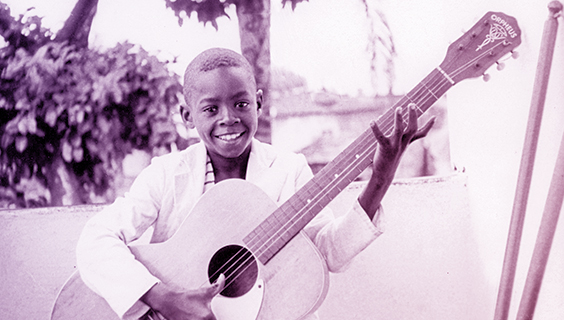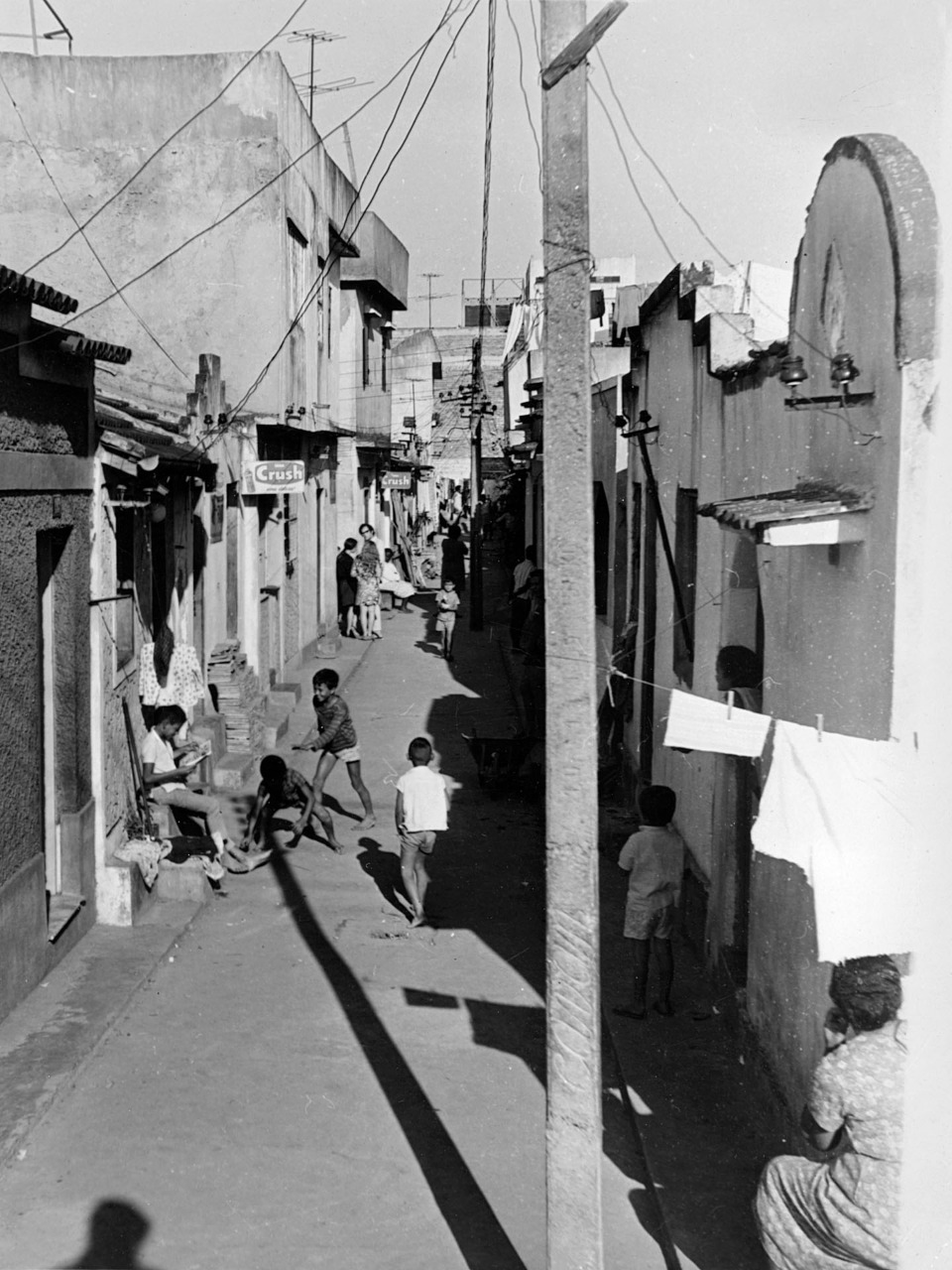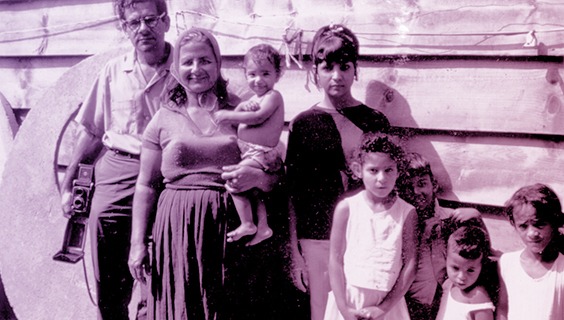A study by Rachel Viana, winner of the Oswaldo Cruz Thesis Award, analyzes conditions for the production of pioneering ethnography in Jacarezinho
| Photo: COC/Fiocruz Collection |

By Karine Rodrigues
“Favela, thieves' bunker”. The headline of an article published on a large Brazilian news portal last year generated an immediate reaction from those who know that these low-income densely populated communities cannot be reduced to simply poverty and marginalized people. The association is not new, despite the efforts of researchers who attempt to understand the complexity of these urban agglomerations, like American anthropologist Anthony Leeds (1925-1989)..
The persistence of this perverse association between favelas and poverty and criminality also serves other purposes in various contexts: electoral, real estate, drugs, and the distribution of services that are the duties of the State
An analysis performed by social scientist Rachel Viana in a doctoral thesis defended in the Postgraduate Program in the History of Sciences and Health at the Casa de Oswaldo Cruz, one of Fiocruz’s institutes in Rio, shows that the anthropologist and political scientist Elizabeth Leeds, his wife and main collaborator, were the first to provide a counterpoint — empirically and in favelas — to the theories of the culture of poverty and marginality. They rejected the idea that favela dwellers were isolated, incapable of adapting to urban life or of organizing politically.
At that time, both theories were in vogue among the scientists, administrators and managers who proposed public policies applying to low-income people in Brazil and the United States. Especially those living in uncontrolled settlements, without defined property ownership, like favelas. The Leeds, however, went against the grain, through research that included participant observation and living in the field. Specifically, in Jacarezinho, in the northern section of the city of Rio de Janeiro in the 1960s.
“In the favelas there is work, there is a considerable degree of circulation of various types of capital, and there is creativity. The persistence of this perverse association between favelas and poverty and criminality also serves other purposes in various contexts: electoral, real estate, drugs, and the distribution of services that are the duties of the State, etc. Not to mention the racist nature of this association between favelas, poverty and criminality,” emphasizes Viana,
Study reconstructs research by Anthony Leeds through archives
For nearly a decade, the researcher has been focusing on the subject, investigating the documents in the Anthony Leeds archives, preserved by the Casa de Oswaldo Cruz, in Rio de Janeiro, and the National Anthropological Archives, in Maryland, in the United States. In addition to having carried out a preliminary identification of the material donated by Elizabeth Leeds to the Casa de Oswaldo Cruz, Viana began a more systematic analysis of the material in 2012, when she started her master's degree.
 |
| Leeds analyzed different aspects of favela life. Photo: COC/Fiocruz Collection. |
In her doctorate, Viana investigated the conditions under which the production of knowledge on the ethnography of Jacarezinho was carried out in 1960 by the Leeds and their network of researchers —the first to focus on the favelas of Rio. The work in the favela in the northern part of Rio was one of the main references for The Sociology of Urban Brazil (1978), a seminal book for urban studies, focusing on what were known as uncontrolled settlements, and a pioneering work in the field of sociology and urban anthropology in Brazil.
The Leeds met in Brazil in 1965. At the time, Elizabeth was working for the Peace Corps, one of the international agencies that carried out technical cooperation programs to foster development in poor communities. The couple went back to the United States and then returned to Rio during the summers from 1966 to 1968. During those visits, they lived in Jacarezinho. In 1969, they moved to Copacabana, on the south side of Rio.
Viana’s thesis discusses the main issues debated by anthropology in the 1960s, when the Cold War and military dictatorships in Latin America set the tone. Among them are the work of the US international technical cooperation agencies related to public policies regarding the residents of the favelas of Rio; the transformation of Peace Corps volunteers into favela researchers; and the people, political events, and disputes in Jacarezinho.
To answer the research questions in her thesis, Viana reconstructed the historical and intellectual context of this ethnography, based on field notes taken by the Leeds and their network of researchers and collaborators. The records include work reports from Peace Corps volunteers, letters, newspapers, oral statements, pamphlets, receipts and even handwritten documents. The reconstruction was possible thanks to a meticulous analysis and collation of the wide variety of documents.
Close relationship with residents marked the work of the Leeds
Viana demonstrates that the ethnography carried out by the Leeds, by involving young Peace Corps volunteers and residents of Jacarezinho in the knowledge production process, innovated in terms of the relationship of the anthropologist with the previously passive network of researchers and collaborators. In Jacarezinho, they assumed the role of active subjects in the construction of knowledge.
“This scientific practice, of a dialogical and collaborative nature, was one of the contributions of the Leeds to Brazilian social science studies focusing on the urban and the favelas,” she writes in her thesis entitled Ethnographic encounters and network anthropology: the favela of Jacarezinho and the research of Anthony and Elizabeth Leeds in the 1960s. The study won the 2020 Oswaldo Cruz Thesis Award in the field of Humanities and Social Sciences.

The Leeds' work was marked by the proximity to the residents. Photo: COC/Fiocruz Collection.
From this exchange of experiences, the couple promoted another change in the scientific practice of anthropology and ethnography by carrying out a comparative analysis of their collaborators' field notes to consolidate the comparative perspective. Viana demonstrates that this was how the empirical basis was built to provide a counterpoint for the cultural theories of poverty and marginality, sometimes used as a justification for the removal policies of the period.
“Without this more symmetrical treatment with the residents, this dialogue on equal footing, this search for more impartial dialogue, the Leeds would not have taken the main step towards a change in anthropology,” states the researcher, highlighting the interaction between the scientific network, formed by the couple and the researchers, and the field networks, formed by residents.
Favelas as a solution to the lack of housing policies
Regarding the justified uproar caused by the published article that reduced Maré, in the north of Rio, to a “bunker for thieves” because it was the home of more than 240 fugitives from justice, the researcher draws attention to the intentions behind this recurring association:
"The government and the opinion of the wealthier classes insist on associating favelas with poverty and criminality, voluntarily blind to the fact that the real problem is not the favela, but rather the lack of fair, decent housing policies and the lack of access to free, basic quality public social services."
This scientific practice, of a dialogical and collaborative nature, was one of the contributions of the Leeds to Brazilian social science studies focusing on the urban and the favelas
According to Viana, the Leeds also showed that the favela was often the best solution for low-income housing, given the thousands of people living on the street. “Currently, we are seeing this more glaringly during the pandemic. Many people lost their jobs and don't have anywhere to live. They were forced to leave their homes in the favelas to live on the streets. This reality has always existed. Now it is worse," she concludes.
Winner of the 2020 Oswaldo Cruz Thesis Award, granted by Fiocruz for exceptional work advancing the field of healthcare in the institution's various focus areas, Viana says she felt an unspeakable emotion when she learned of the honor.
"I'm on cloud nine, because this award means a lot to me." And she notes that the award is not an exclusively personal achievement, but rather that of all those who contributed and aided her during her doctoral years, such as her advisor Nísia Trindade Lima, family members, students from the state public school where she teaches and all women — those who studied with her or not, scientists or not. “I want to emphasize the issue of gender because we women experience violent, gender-based acts every day. And with me it was no different. For me, the award is not a personal achievement, rather it is a political achievement of all women, all of us,” she stresses.
Edited by Glauber Gonçalves | Translated by Naomi Sutcliffe de Moraes








